Beneficial Insect Hotel
£29.99
This attractive Beneficial Insect Hotel feature different nesting / over-wintering areas suitable for a range of beneficial insect such as ladybirds, lacewings, butterflies and solitary bees. Helping these insects to breed, feed and over-winter in your garden will help boost their numbers leading to better plant pollination and natural pest control. This sturdy Beneficial Insect Hotel has a metal roof and comes with a cleaning brush included. It is divided into different sections and features a ladybird chamber (it has a hinged door in the side, that allows easy access to the central chamber, which means it is ideal for releasing our live ladybirds into) , butterfly house and cut canes for insects to explore / hide / nest. Designed to attract ladybirds and lacewings, which both eat pests, butterflies and solitary bees like Mason Bees and Leafcutter Bees – these friendly bees are safe around children and pets and almost never sting, but are effective plant pollinators. The Beneficial Insect Hotel is designed to be wall-mounted, so position on a wall, tree or fence amongst climbing plants. It measures 28cm across (at the widest point) and 31cm high and 12.5cm deep while the pear measures 22cm across (at the widest point) and 25cm high and 8cm deep. N.B. We supply LIVE Ladybirds (adults and larvae) – available NOW.
Special Offers – Add LIVE Ladybirds (adults and / or larvae) and save £2.49 off the normal combined price – savings applied at checkout.
Special Offer – Add 2 x sachets of Butterfly Food for £6.98 saving £1.00 off the normal combined price
Special Offers – Add Ladybird Food and / or Ladybird Feeders to your order and save money off the normal combined price
Full Description
This attractive Beneficial Insect Hotel feature different nesting / over-wintering areas suitable for a range of beneficial insect such as ladybirds, lacewings, butterflies and solitary bees. Helping these insects to breed, feed and over-winter in your garden will help boost their numbers leading to better plant pollination and natural pest control. This sturdy Beneficial Insect Hotel has a metal roof and comes with a cleaning brush included. It is divided into different sections and features a ladybird chamber, butterfly house and cut canes for insects to explore / hide / nest. Designed to attract ladybirds and lacewings, which both eat pests and solitary bees like Mason Bees and Leafcutter Bees – these friendly bees are safe around children and pets and almost never sting, but are effective plant pollinators. The Beneficial Insect Hotel is designed to be wall-mounted, so position on a wall, tree or fence amongst climbing plants. It measures 28cm across (at the widest point) and 31cm high and 12.5cm deep while the pear measures 22cm across (at the widest point) and 25cm high and 8cm deep.
- Ladybirds – Ladybirds are one of the best known beneficial insect and a welcome sight in the garden, where they happily munch away on greenfly and other tasty pests. By boosting their numbers, it will lead to a permanent decrease in the number of pests in your garden i.e. aphids and spider mites. The Beneficial Insect Hotel has a hinged door in the side, that allows easy access to the central chamber, which means it is ideal for releasing our live ladybirds into.
- Lacewings – Adult lacewings are attractive flying insects with translucent pale green wings that feed on nectar, but their larvae feed on aphids and other soft bodied insects such as whitefly and thrip eating hundreds of pests each. The majority of adult lacewings do not survive the winter due to a lack of over-wintering sites, so by positioning a insect house you can help more of these beneficial insects to survive the winter, so that they can lay hundreds of eggs in the spring.
- Solitary Bees House – The holes will attract non-swarming bees like the Red Mason Bee, Leafcutter Bee and other solitary bees. These friendly bees are safe around children and pets (they rarely sting) and are naturally attracted to holes in wood – holes which are becoming harder to find in modern gardens. The Red Mason Bee (Osmia rufa) is active in the garden from March to July and is responsible for pollinating top fruit and soft fruit. The Blue Mason Bee (Osmia caerulescens) is active in the garden from late April to late July and is an effective pollinator of summer flowers, herbs and vegetables.
Siting – Site in a sunny position facing between south south east to catch some morning sun. Mounting height between ground level and 1.5m. A mud supply is useful, but not essential. No chemical treatments needed as the habitat is made from durable timber.
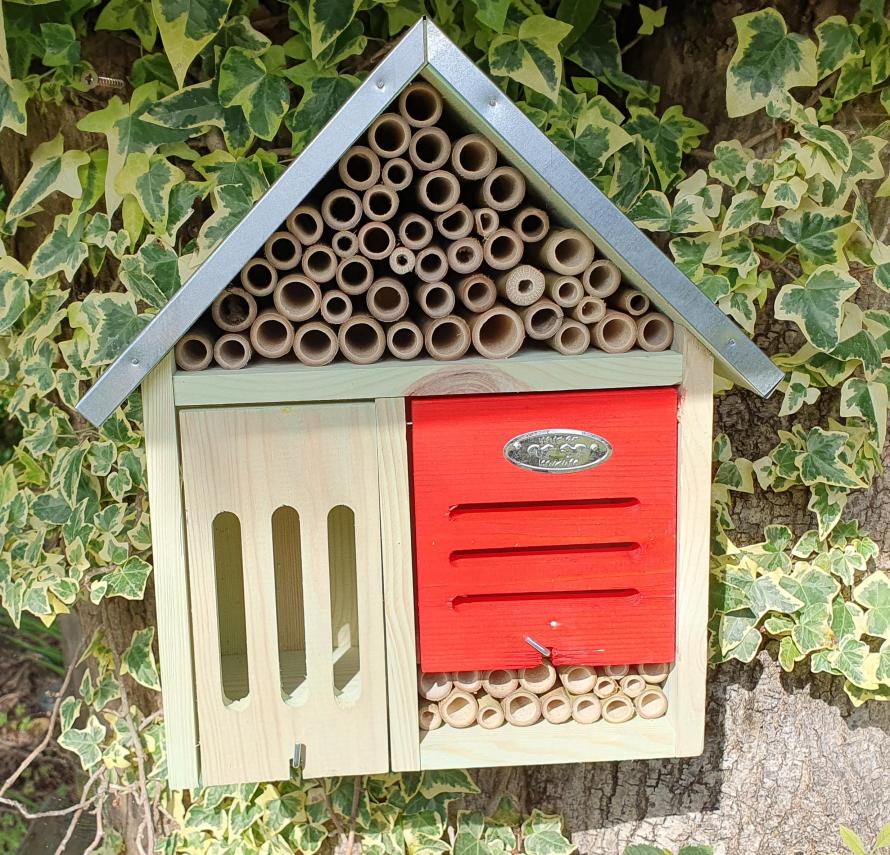
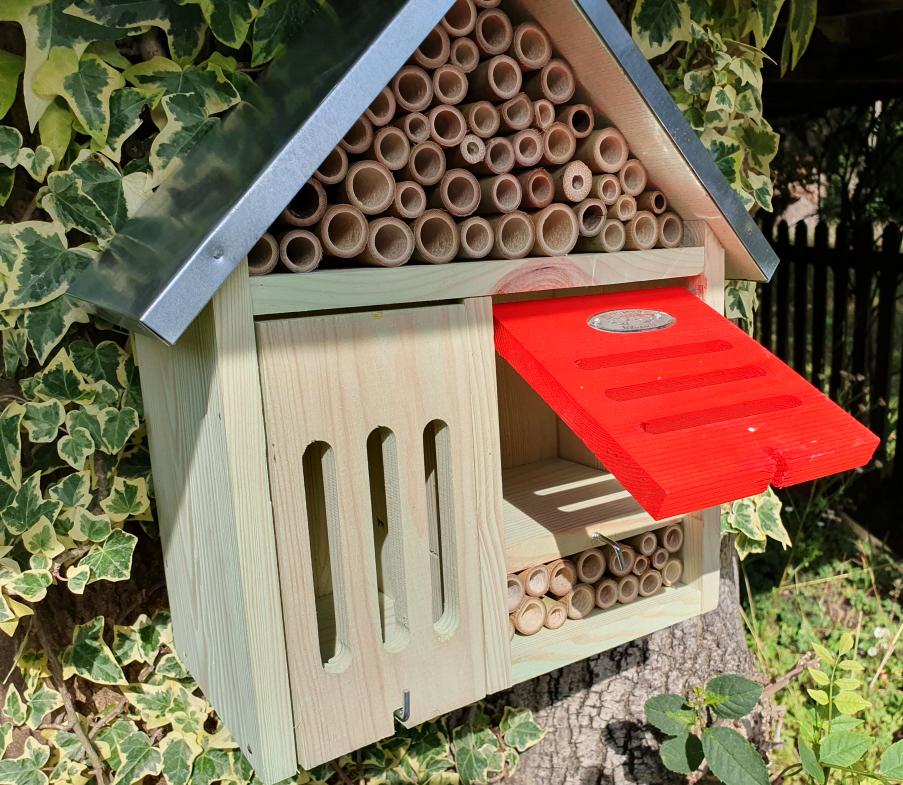
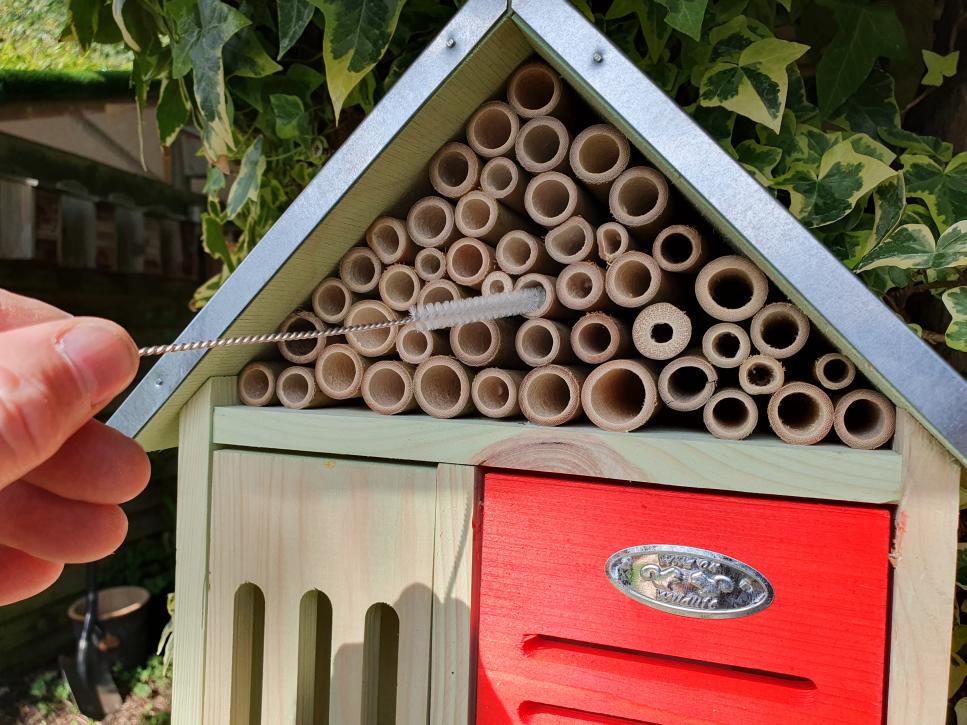
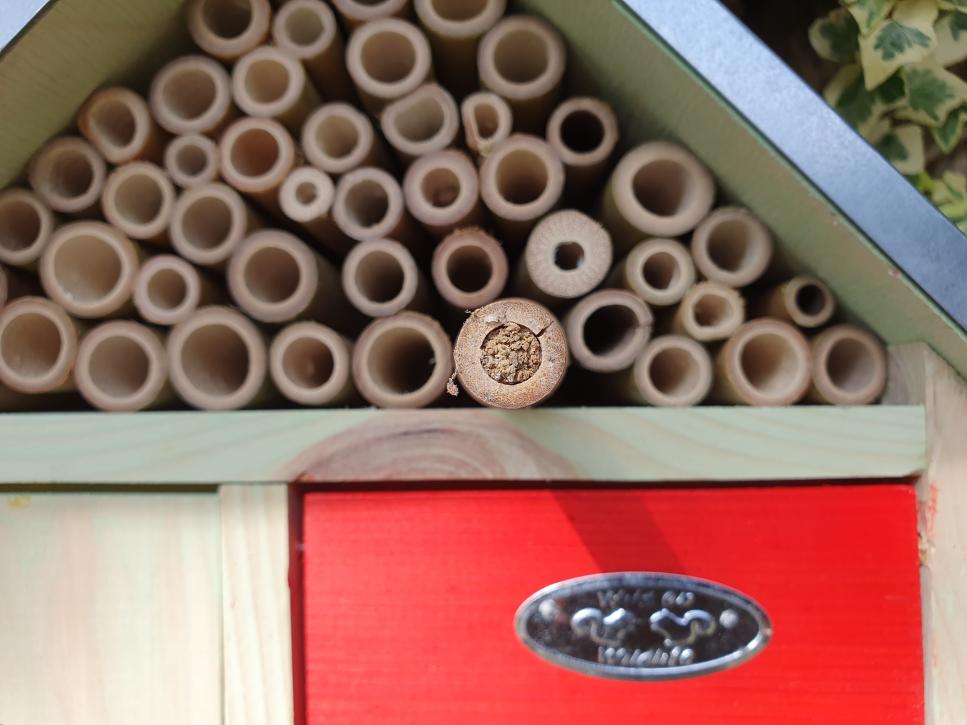
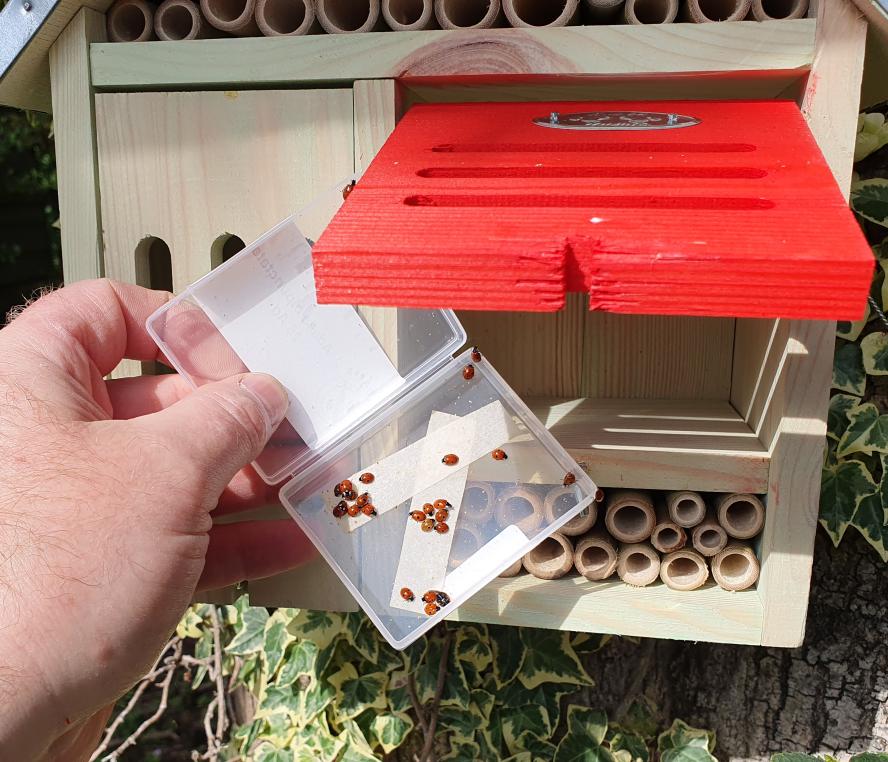
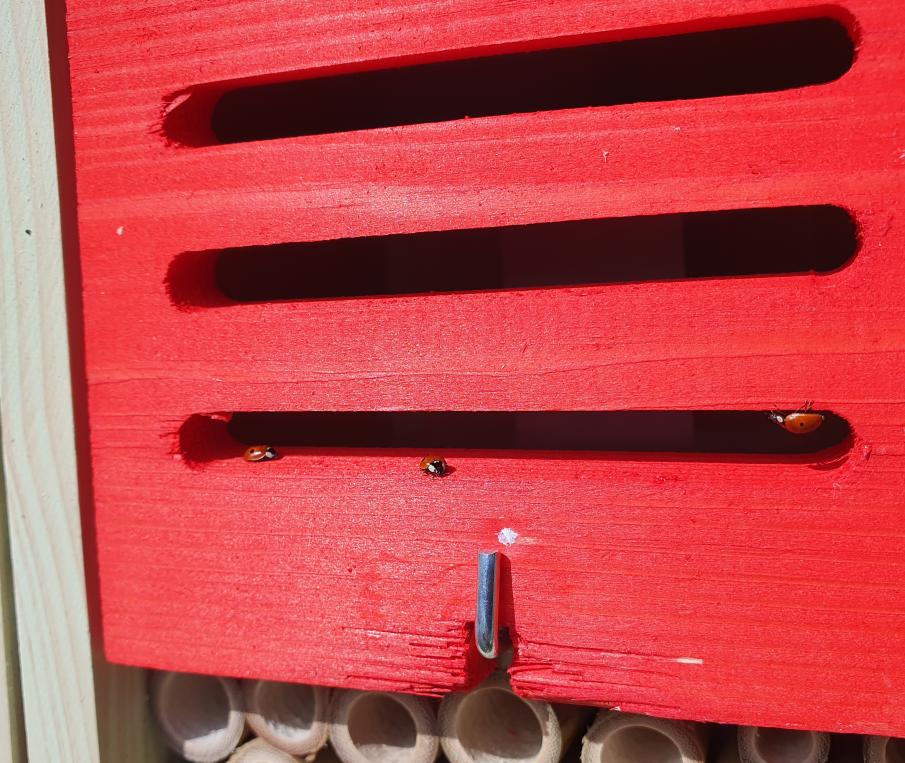

Reviews
There are no reviews yet.